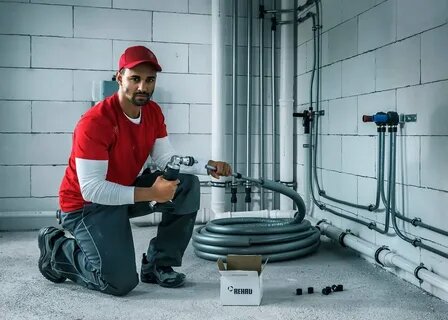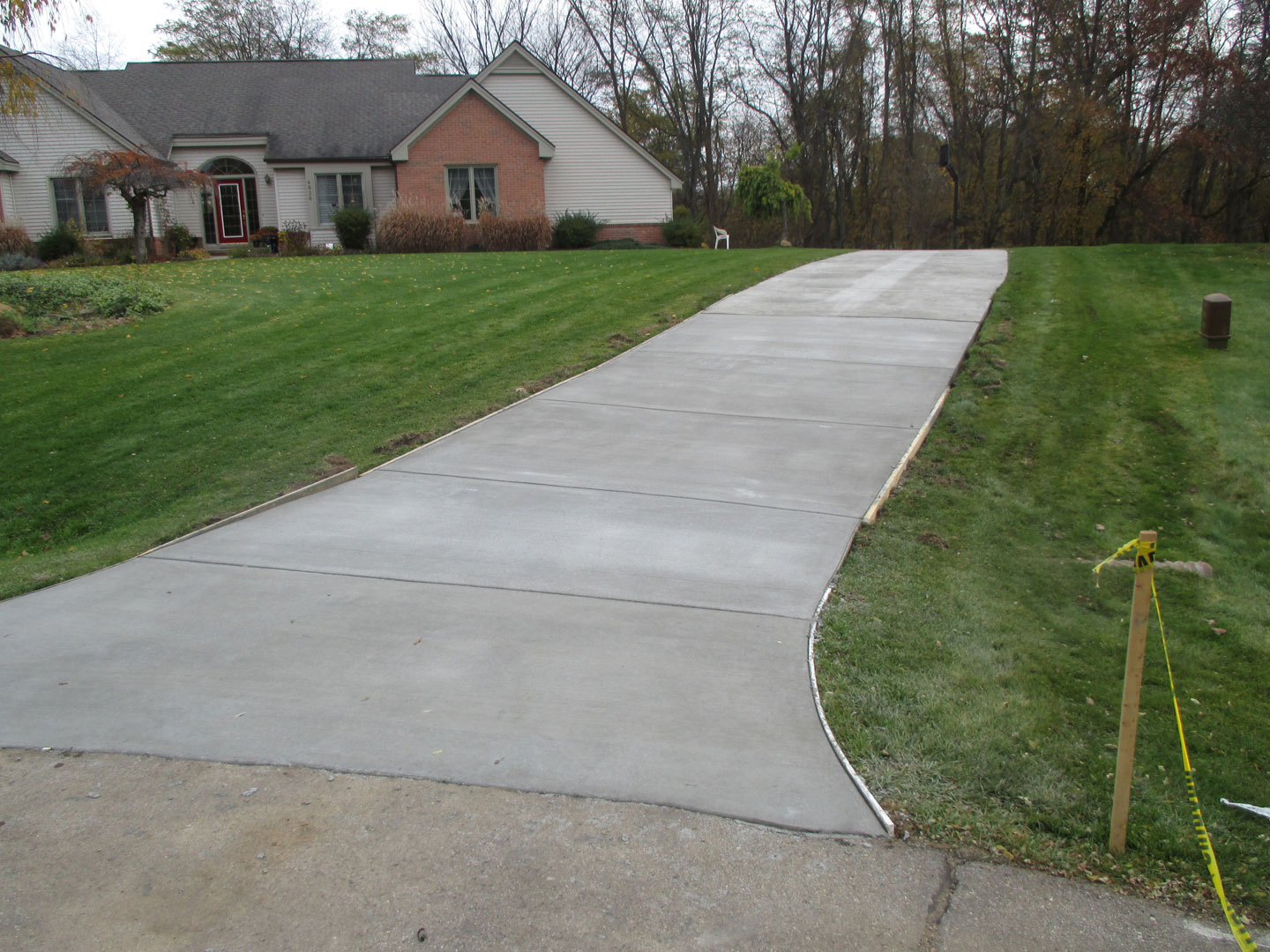Conducting regular plumbing inspections in multi-story buildings is crucial to maintaining the property, preventing costly repairs, and ensuring tenant satisfaction. Multi-story buildings come with unique challenges due to the complexity and volume of their plumbing systems, which typically include numerous pipes, fixtures, and pressure systems across multiple floors. Implementing a structured approach for regular inspections helps to detect issues early and maintain an efficient water flow throughout the building. A reliable and experienced commercial plumber, like ADS Wales, can help ensure that multi-story buildings meet plumbing standards and remain functional.
Here’s a guide to help you understand how to conduct thorough plumbing inspections in multi-story buildings.
Key Areas to Inspect in Multi-Story Building Plumbing Systems
Plumbing in multi-story buildings includes more than just pipes; it involves a range of complex systems that work together. When planning an inspection, some of the most critical areas include:
- Main Water Lines and Supply Pipes
Begin by inspecting the main water lines that supply water to the entire building. These should be free of leaks, corrosion, and blockages, as issues here can affect water supply to all units. - Drainage Systems and Waste Pipes
Drainage issues can quickly escalate in a multi-story building, leading to backups and water damage. Check for clogs, slow drains, and signs of wear in waste pipes on each floor. - Water Pressure and Flow Regulators
Proper water pressure is essential for consistent service to all floors. Inspect the pressure regulators to ensure water flows adequately to all levels without causing pipe stress. - Fixtures and Fittings
Each fixture, from sinks and faucets to toilets and showers, should be checked for leaks, damage, and functionality. - Backflow Prevention Systems
Backflow preventers are especially important in multi-story buildings, where contaminated water can easily mix with the main supply. Check for functionality and adherence to local plumbing codes. - Hot Water Heaters and Boilers
Hot water systems are essential for tenant comfort. Inspect water heaters and boilers for signs of wear, efficiency, and any leaks in the connections or valves. - Sump Pumps and Drainage
Multi-story buildings may have basement sump pumps to prevent flooding. Regularly inspect these for debris and functionality, as failures can lead to costly water damage. - Piping in Common Areas
Pipes in stairwells, hallways, and other common areas should be checked for corrosion, insulation (for freeze protection), and any visible damage.
Steps to Conduct an Effective Plumbing Inspection
A structured approach is essential for effective Commercial Plumber inspections. By following a step-by-step process, you can identify potential issues early and maintain a high standard for building safety and tenant comfort.
1. Develop an Inspection Schedule
Plan regular inspections at least twice a year. Additionally, consider conducting spot inspections after extreme weather, renovations, or whenever tenants report issues. Organize these inspections in advance and notify tenants, as water supply may need to be shut off temporarily.
2. Inspect Each Floor Systematically
For a multi-story building, it’s best to start from the top floor and work downward, systematically checking each system. This approach allows you to address any leaks, pressure changes, or drainage issues floor-by-floor, preventing minor issues from becoming bigger as you progress.
3. Check Water Pressure on Each Floor
Water pressure in multi-story buildings can vary between floors. Use a pressure gauge to verify that water pressure is consistent and within recommended levels. If pressure drops significantly on higher floors, it may indicate an issue with the main water supply or with pressure-regulating valves.
4. Test Drainage and Ventilation Systems
Proper drainage and venting are essential to prevent backflow, blockages, and sewer odors. Pour water into floor drains to check for clogs, and test vent stacks to ensure air can move freely, allowing wastewater to drain efficiently.
5. Examine Fixtures for Leaks and Corrosion
Leaks in fixtures, such as sinks, showers, and toilets, are a common cause of water waste and potential damage to building structures. Examine each fixture for signs of corrosion, loose connections, and minor leaks that could worsen over time. Even small leaks should be fixed promptly.
6. Inspect Main Sewer Line and Waste Pipes
The main sewer line is essential for carrying waste away from the building. Have a plumber from ADS Wales or another reputable service provider conduct a camera inspection of the sewer line. This allows for identification of blockages, cracks, or invasive tree roots that may lead to backups.
7. Verify Functionality of Sump Pumps and Drains
In areas prone to flooding or those with basements, sump pumps are critical to managing water flow. Check the operation of sump pumps by filling the sump pit with water to ensure it’s working correctly. Clear debris from the pump and drainage systems, as blockages here can lead to severe flooding.
8. Test Backflow Prevention Devices
Backflow preventers protect potable water from contamination. These devices require regular testing and certification in many jurisdictions, especially in commercial and multi-story properties. Test each backflow preventer to ensure it’s functioning as intended and complies with local health codes.
The Importance of Professional Help in Plumbing Inspections
While certain tasks, like checking fixtures and testing water flow, can be done in-house, a comprehensive inspection should involve a licensed commercial plumber. Working with a qualified service provider like ADS Wales provides several benefits:
- Specialized Equipment for Detailed Inspection
Professional plumbers have access to tools like camera inspection equipment, which can reveal hidden issues inside pipes and sewer lines. - Expert Knowledge of Local Plumbing Codes
Plumbing in multi-story buildings must comply with strict local codes. Professional plumbers ensure that your building meets all regulations, avoiding fines and ensuring tenant safety. - Efficient Problem Resolution
A licensed plumber can quickly identify and resolve issues that may go unnoticed during in-house inspections, helping prevent costly repairs and downtime.
By partnering with an experienced commercial plumber, you ensure a thorough inspection and maintain a well-functioning plumbing system across all floors.
Preventive Maintenance to Reduce Future Issues
Regular inspections go hand-in-hand with preventive maintenance. Implementing a preventive maintenance plan can help address minor problems before they become significant issues. Preventive measures include:
- Regular Drain Cleaning
Professional drain cleaning prevents buildup and keeps drains flowing freely. This is especially important in high-traffic areas like kitchens and restrooms. - Pipe Insulation
Insulating exposed pipes helps prevent freezing and bursting in colder months, especially in multi-story buildings with outdoor-facing walls. - Annual Boiler Servicing
Boilers and water heaters should be serviced annually to ensure they operate efficiently and safely. - Routine Fixture Replacement
Replace older or damaged fixtures as part of your maintenance plan. Over time, even minor leaks can lead to structural damage, and new fixtures improve water efficiency.
Preventive maintenance can extend the life of your plumbing systems and prevent unexpected repairs. ADS Wales provides preventive maintenance services tailored to the unique needs of multi-story properties, helping businesses keep their plumbing systems running smoothly
Conclusion
Conducting regular plumbing inspections in multi-story buildings is essential for maintaining a safe and functional environment for tenants and visitors. By focusing on critical areas, developing a consistent inspection routine, and performing preventive maintenance, you can prevent small issues from becoming major disruptions. Partnering with a reliable commercial plumber like ADS Wales ensures that inspections are comprehensive and compliant with industry standards, giving you peace of mind that your plumbing system is in optimal condition.




